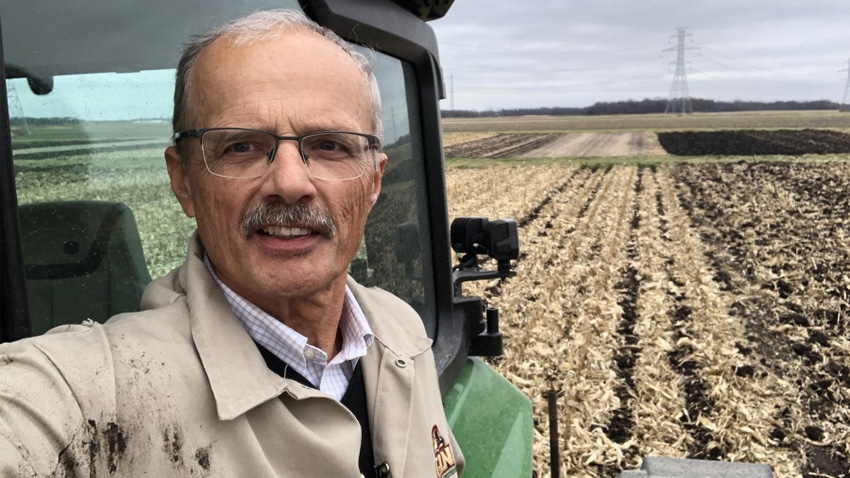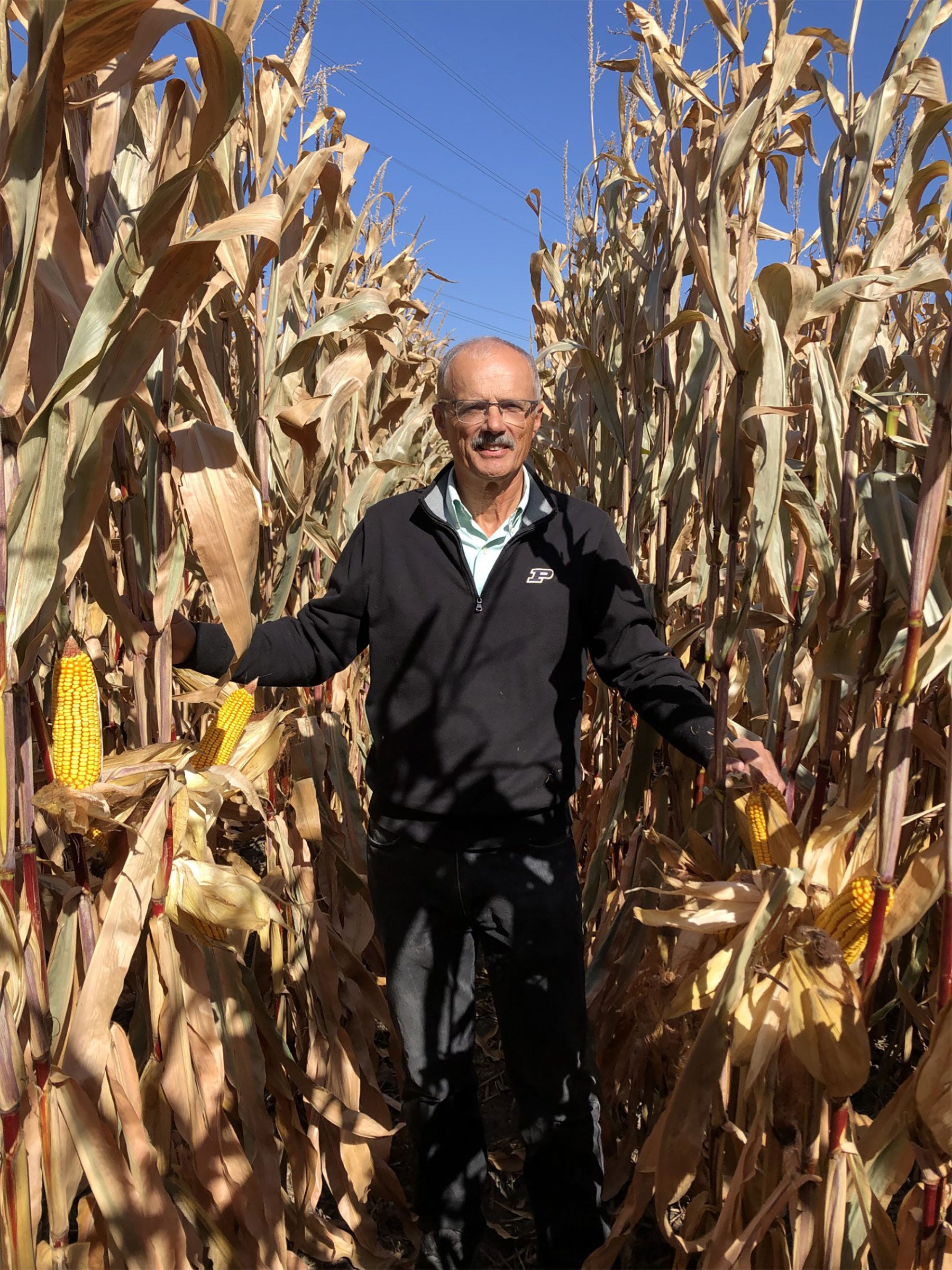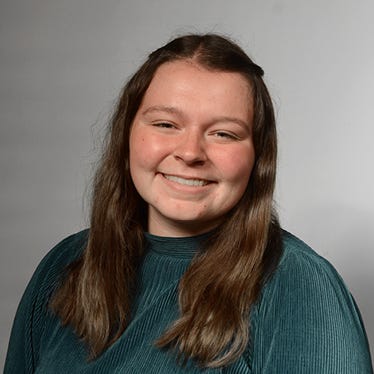November 20, 2023

Tony Vyn, professor of agronomy at Purdue, has seen improvements in conservation tillage and other farming practices during his 25-year run at the university. This fall marks Vyn’s final season at Purdue, where his work and accomplishments have helped farmers improve yields and efficiency across the state.
While his advancements have largely benefited the Midwest, that is not where his roots are planted. Vyn’s work and impactful discoveries span back to his hometown in Canada.
Vyn grew up with a farming background in Ridgetown, in southern Ontario. The family farm was a hog and cash crop operation, and Vyn says his time there encouraged him to study agriculture and pursue a career in the industry.
After attending Trinity Christian College in Chicago and the University of Guelph in Guelph, Ontario, Vyn became a research associate for the crop science department and land resource science department at the University of Guelph for several years. He then dove into a part-time doctoral program while continuing to teach cropping systems and manage a research program at the university. He later became a full professor at Guelph.
In 1998, Vyn had the opportunity to fill a cropping systems position at Purdue. However, this was not an easy decision following a lifetime of living and learning in Canada. The chance to find ways to increase yields and conduct more research with conservation tillage systems was what ultimately attracted him.
“It was an exciting move for me,” Vyn adds. “I’ve particularly enjoyed the warmth with which I was received in the agronomy department, and I enjoyed being able to attract some outstanding graduate students to my research program.”
Improving Indiana agriculture
Vyn’s research and discoveries during his time at Purdue have had positive impacts and applications for Indiana farmers. The accomplishment that stands out to him is improving strip tillage as a viable tillage system for corn and wide-row soybeans.
“It resulted in equal or superior yields to those with full-width tillage systems, and allowed for opportunity for fertilizer placement and improved efficiencies in terms of fertilizer costs and availability to plants,” Vyn says.
As an example, strip-till corn yield this fall following soybeans reached 292 bushels per acre — 14 bushels better than for the conventional disk-chisel system. These results were from the ongoing 49-year tillage trial that compares no-till, conventional tillage and strip-till on dark prairie soils at the Agronomy Center for Research and Education near West Lafayette, Ind., better known as ACRE or the Purdue Agronomy Farm. Vyn managed this long-term trial for 25 years.

CONTINUING ON: Tony Vyn plans to keep seeking new sustainability improvements in crop sciences after he retires from teaching and research at Purdue.
Toward higher corn yields
Another achievement that Vyn reflects on is contributing to helping farmers and industry understand physiological changes in corn that lead to yield gains. He participated in corn hybrid era studies, where he observed differences among hybrids resulting from variable inputs such as planting densities and nitrogen levels.
“In all of those, I have learned a lot about the resiliency of modern hybrids to achieve higher yield,” Vyn adds.
Vyn’s time at Purdue was capped by his recognition as the inaugural Henry A. Wallace Chair in Crop Sciences. He has held that position since 2018 and is thankful for the funding opportunities that it provides to him and his students.
“It reflects the value of agronomic sciences to making contributions that matter to society,” Vyn says.
However, Vyn recognizes that the support he’s received from family and students, plus funding from commodity boards, government and ag companies, are ultimately what led to his success in crop sciences.
“I’m delighted with how resolved the graduate students and the post-docs I employed were to work hard, to do the best science possible and to communicate the best they could to the crop consultants and farmers of the world.
“It’s the people and the funding that have made that possible, and I owe both the sponsors and the students a real debt of gratitude.”
Tony Vyn at a glance
Current role: Professor in agronomy at Purdue, wrapping up his final year
Hometown: Ridgetown, Ontario
Growing up: Lived on his family’s hog farm in Canada
Past experience: Over 40 years of teaching, researching and contributing to crop science advancements
Family: Wife, Cathy; children, Richard, Suzanne, Justin and Reuben; 14 grandchildren
No. 1 goal: Take the time to observe, encourage and celebrate the lives of plants and people while in retirement
Notable: Served as Corteva Agriscience Henry A. Wallace Chair in Crop Sciences since 2018
Listen to an interview with Vyn as he reflects on his career at Purdue:
Read more about:
EducationAbout the Author(s)
You May Also Like






